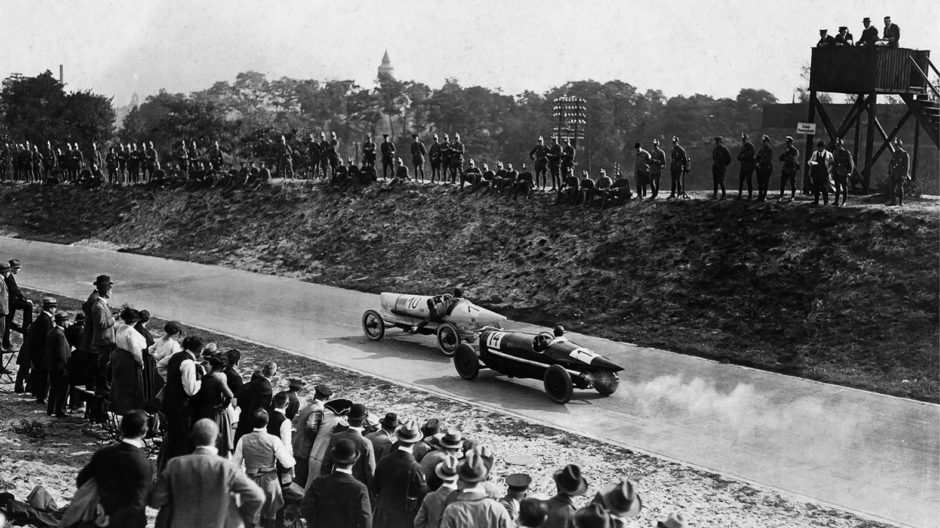Opel made history on Berlin’s Avus. One hundred years ago, Fritz von Opel won the opening race on the “Automobil-Verkehrs- und Uebungsstraße”. Opel also won the last race on the famous track: Stefan Kissling ended the racing era on today’s A115 city motorway with a double victory in both rounds of the German Touring Car Challenge. In the intervening 77 years, the Avus, like so many race tracks, experienced tragedies and triumphs.
Opel celebrated great moments in Berlin – the most famous of which is certainly the record-breaking drive of the Opel RAK 2. Behind the wheel of the rocket-racer was daredevil Fritz von Opel, which earned him the nickname “Raketen-Fritz” (“Rocketman Fritz”).
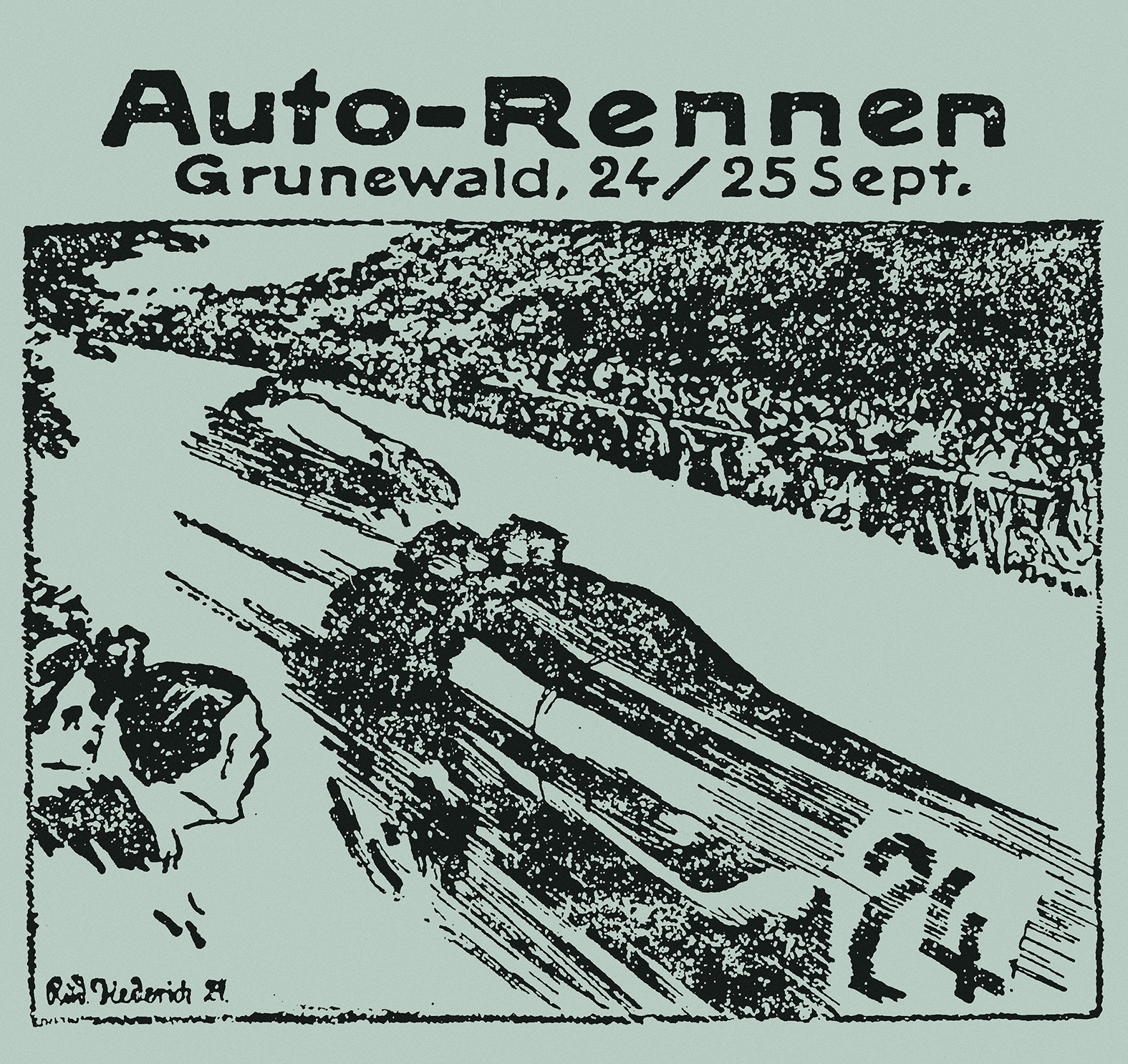

1921: First race,
first tears of joy
Even in the planning phase, which began as early as 1909, a dual function was envisaged for the Avus. On the one hand, it was intended as an important part of the transport network in the west of Berlin. On the other hand, it was supposed to thrill the masses as a racetrack. The layout was actually not ideal for this purpose: two straights, each about nine kilometres long, connected at their ends by two wide loops. The track was far better suited to endurance tests than for exciting overtaking duels. Nevertheless, all of Germany eagerly awaited the first race, which was scheduled for the opening weekend of the 1921 German Motor Show.
–
More than 200,000 spectators watched the event.
–
On September 24 at 11 a.m. the big moment finally arrived. Sixteen racing cars from nine manufacturers took to the Avus. More than 200,000 spectators watched the event – in the freshly painted white grandstands, but most of them standing at the track. To accommodate the crowds, 65 ticket booths were set up around the circuit.
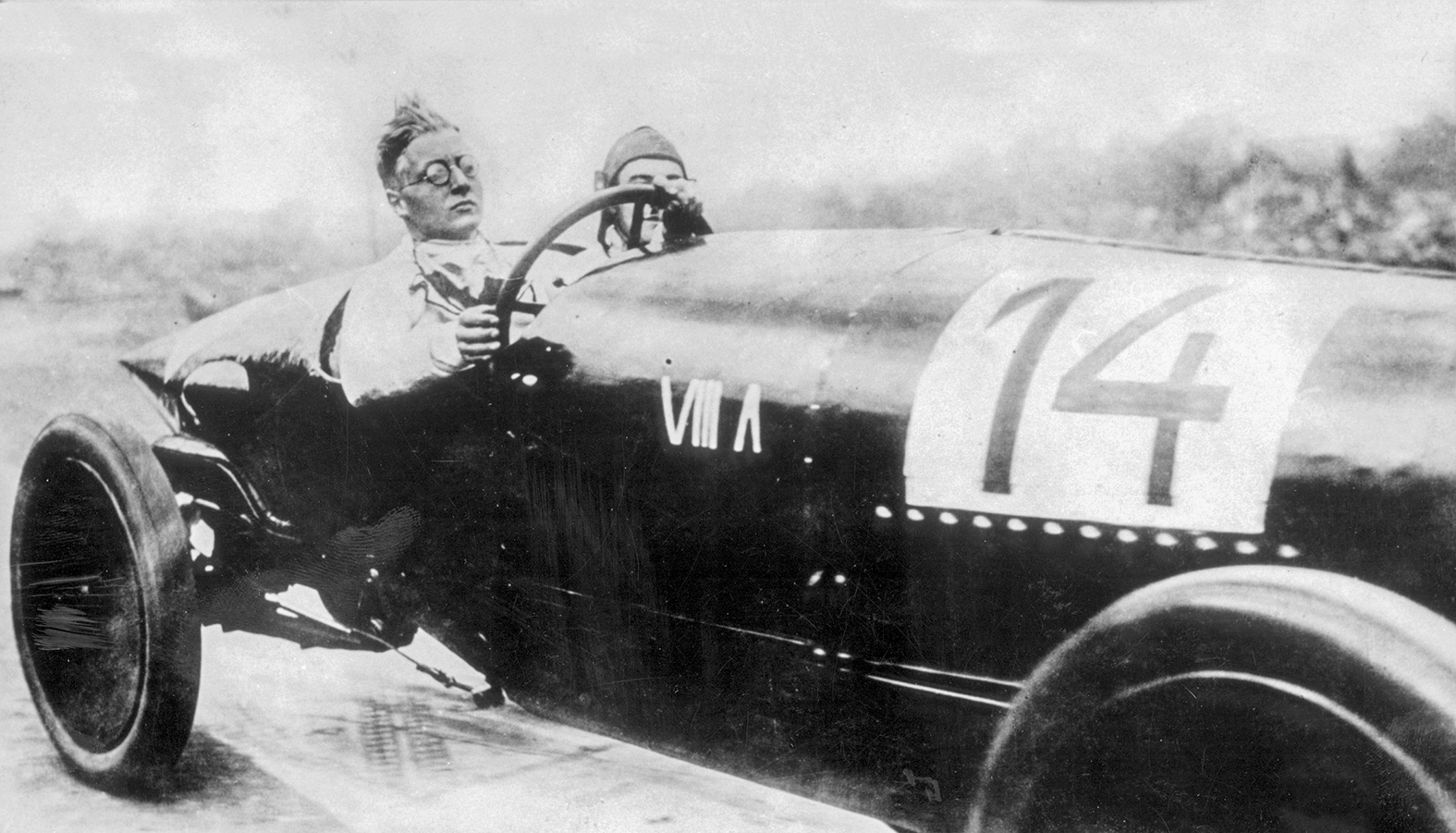
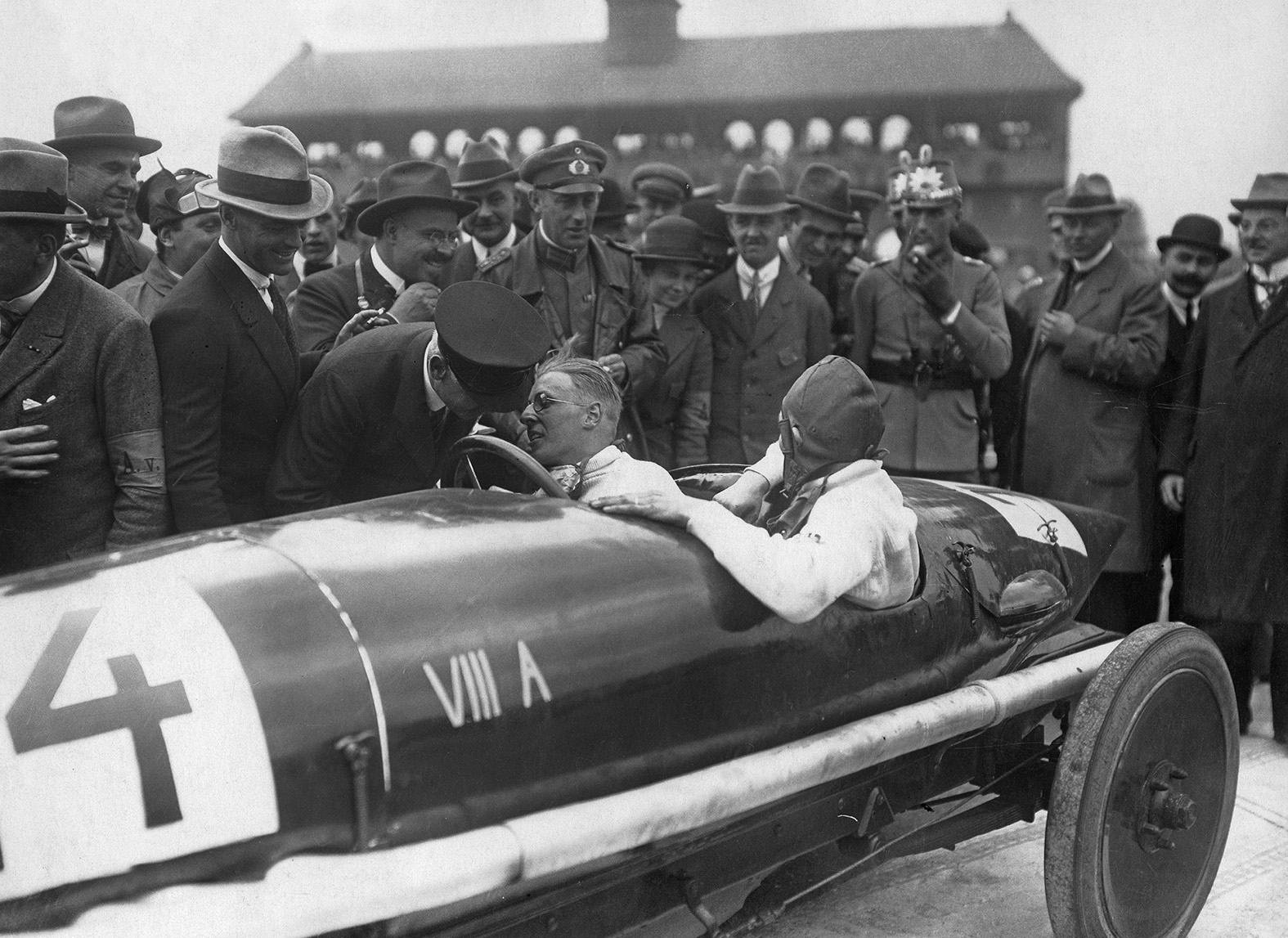
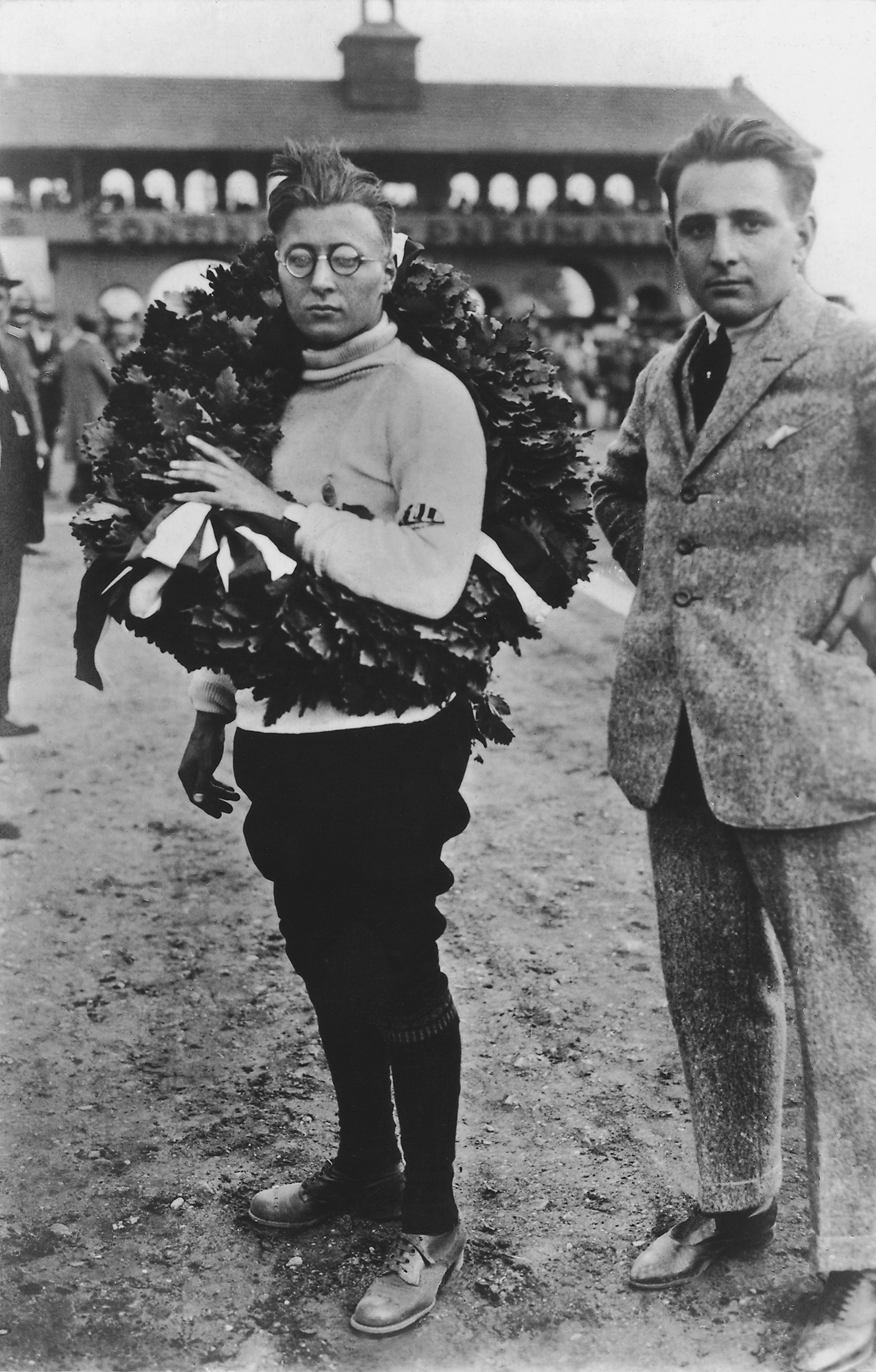
The competitors were unleashed onto the track in pairs at 45-second intervals. Fritz von Opel started in the penultimate pairing. His fire-red Opel 8/25 hp with 2.3-litre four-cylinder engine performed superbly; to the cheers of the crowd, he fought his way forward lap after lap. At the finish, he clearly distanced the competitors and won after seven laps with a time of 1 hour, 4 minutes and 23 seconds, which corresponded to an average speed of 128.84 kilometres per hour. Second-placed Georg Klöble (NSU) was about five and a half minutes behind. With a time of 8 m 14 s, Fritz von Opel also set the fastest lap of the weekend.
–
“I cried like a child for joy.”
–
Fritz von Opel
The brand from Hesse was also at the front on the second day of racing. In race 6, Franz Breckheimer and Fritz von Opel finished second and third. The significance of the positive performance of the Rüsselsheimers was made clear by Fritz von Opel in an interview with the “Berliner Tageblatt” newspaper: “Tears are not usual for me, but I cried like a child for joy.”

The winning motorbike
is also an Opel
On June 24, 1923, von Opel once again proved his talent and competed in the race of the German Motorcyclists‘ Association (DMV). At the end of the day, he emerged as the winner on his Opel 346 cc machine despite strong competition.
In four laps, he achieved an average speed of 87 km/h. His lead over the runner-up was six minutes. The Opel name now adorned the Avus winners‘ lists on two wheels as well as four.
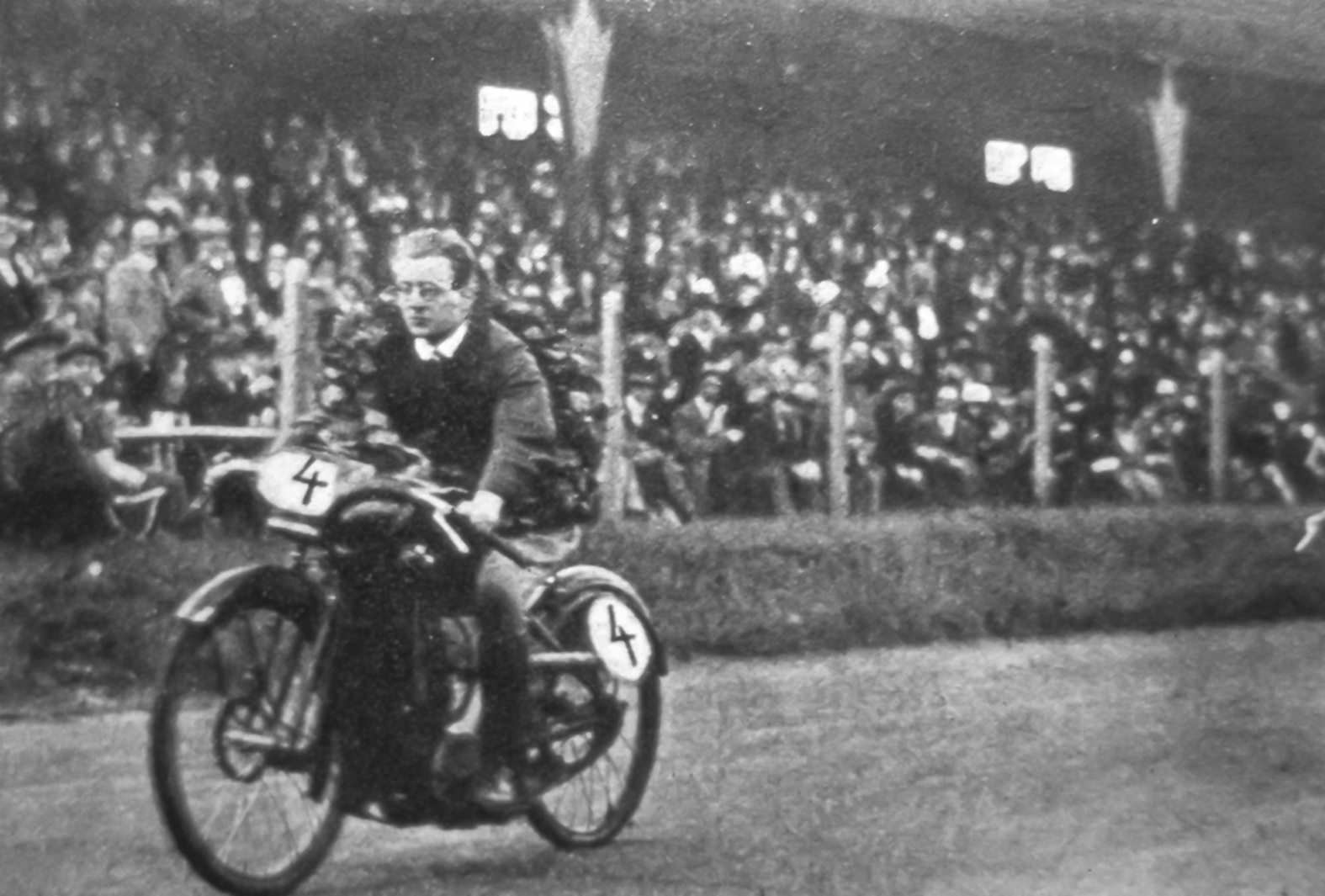

Rocketing into
the future
In the mid-1920s, the Avus was extended further. It received an asphalt surface instead of the previous macadam, widened concrete loops as well as new grandstands and a modern public address system. Just right for the most spectacular day in the 100-year history of the track – the ride on the rocket.
As early as April 1928, the man from Rüsselsheim, together with the publicist Max Valier, the engineer Friedrich Sander and the racing driver Kurt Volkhart, had achieved what had previously been considered utopian: the team had equipped an Opel 4/12 hp with rocket propulsion and successfully tested it – the Opel RAK 1. The tests were to be continued with an improved car and higher speed. Since the home track in Rüsselsheim was unsuitable for this, the choice fell on Berlin’s Avus. The Opel RAK 2 was specially designed for high-speed driving based on the chassis of an Opel 10/40 hp. The black racer with the futuristic design, weighing around 560 kilograms, did not have an engine and gearbox, but it did have stubby side wings and 24 solid fuel rockets at the rear, which together developed six tonnes of thrust.
–
Fritz von Opel’s third strike on the Avus will be the most spectacular.
–
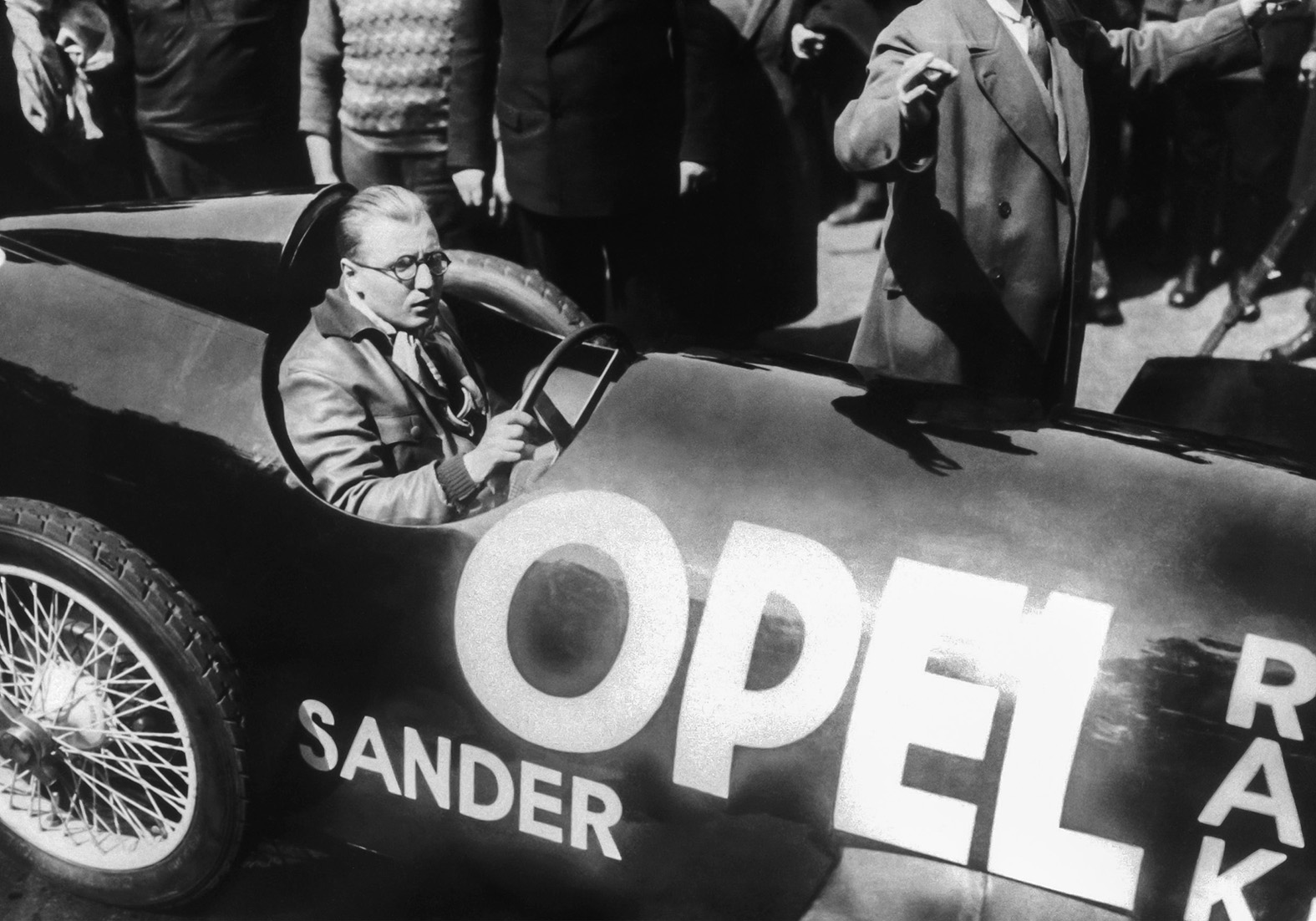
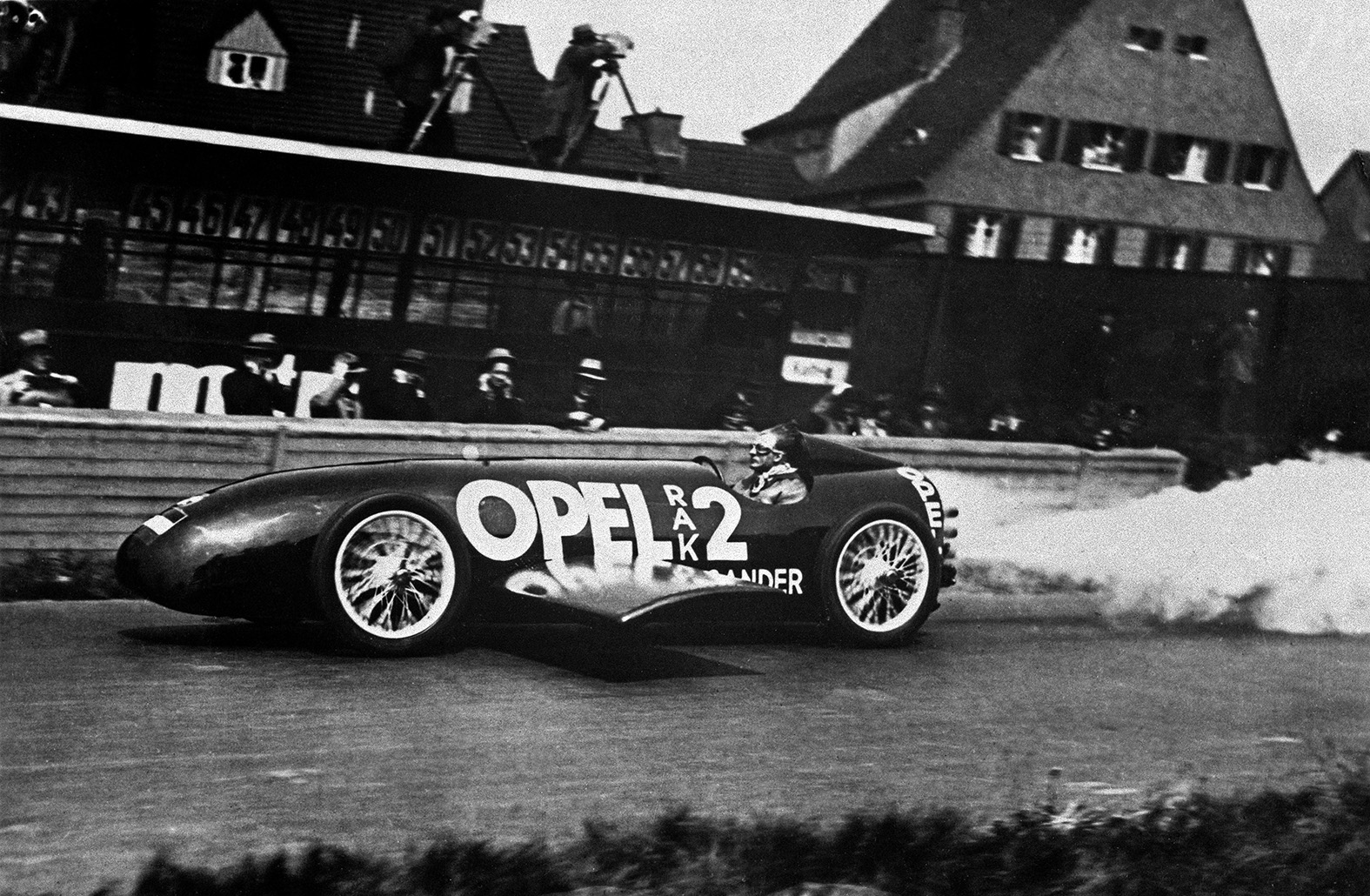
On May 23, 1928, at 10 o’clock in the morning, the numerous police officers cleared the track. Fritz von Opel took his seat behind the large wooden steering wheel. The excited murmur of the 3,000 or so invited guests fell silent. Then everything happened at once: “I step on the ignition pedal. Behind me it howls and throws me forward…. I step on it again, again and it seizes me like a fury for the fourth time. Sideways, everything disappears…. The acceleration is a rush. I can no longer think. Reality disappears.”
–
“I can no longer think. Reality disappears.”
–
Fritz von Opel
The Rüsselsheim driver mastered the north curve and the car’s rearing up, because the wings could not provide enough downforce for the breakneck speed of 238 km/h. After just under three minutes, it was all over. The RAK 2 slowly rolled out, the big clouds of white smoke dissolved into the sky under the cheers of the spectators: The 29-year-old von Opel had impressively proved to the whole world that rocket propulsion is powerful and controllable. Afterwards he was called “Raketen-Fritz” and Opel became known as the most progressive car manufacturer in Europe. The rocket age had its premiere in front of running cameras, and the Avus served as the stage.

The Opel Calibra era
In the following decades, Opel racing cars were mainly to be found in rallying. The brand with the Blitz won three European championship titles, and in 1982 Walter Röhrl became world champion in an Ascona 400. At the end of the 1980s, Opel officially entered circuit races again as a works team. Also on the Avus, which had been significantly modernised and shortened for racing. The hottest seasons came in the mid-1990s in the German Touring Car Championship (DTM) and the International Touring Car series (ITC). With the spectacular Opel Calibra V6 and top drivers, the Rüsselsheim team took the hard-fought victory in the ITC in 1996.
An Opel Calibra was also at the centre of attention on May 3, 1998. At 5:02 p.m. on this cool spring Sunday, an era came to an end. For the last time, the black-and-white chequered flag fluttered at the Avus, waving off Stefan Kissling as the very last winner. As the fastest in practice, the 24-year-old in his red Opel Calibra 16V outpaced his competitors in the German Touring Car Challenge (DTC) right from the start. “A very special occasion for me,” recalls Kissling, whose victory brought the Opel story around the Avus to an end.
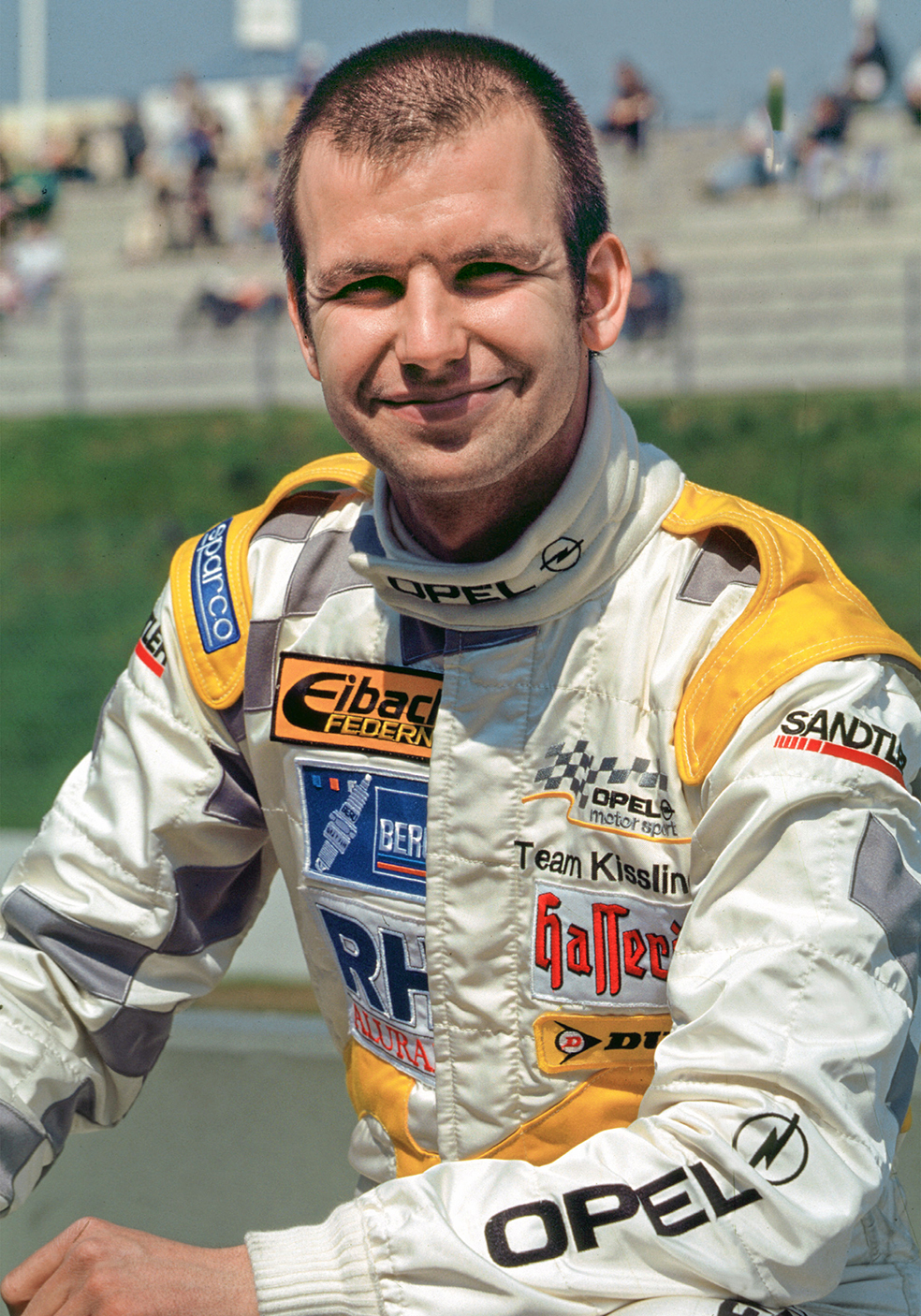
–
An Calibra brought the Opel story around the Avus to an end.
–
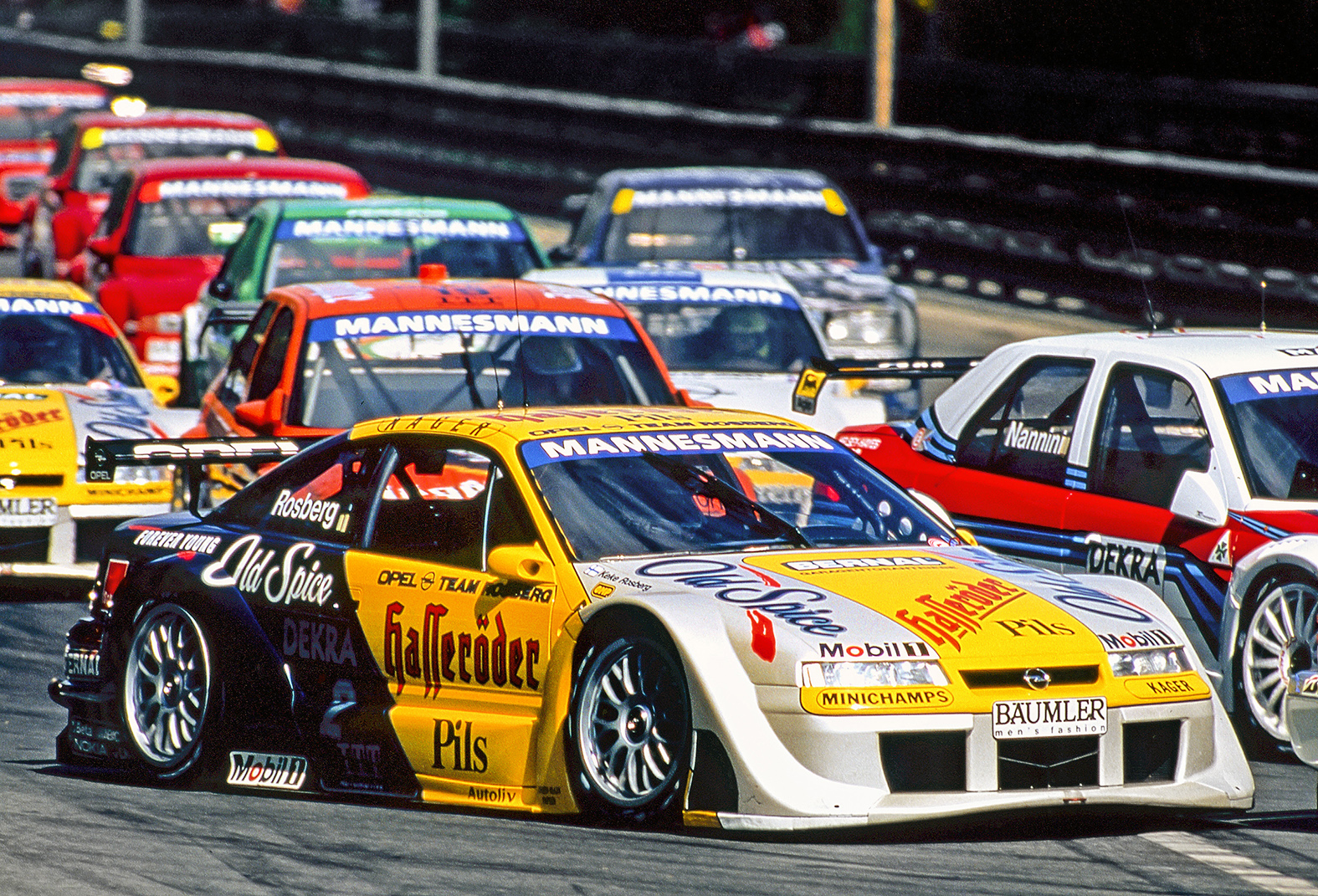

The next highly
charged chapter begins
Since Stefan Kissling’s DTC victory, motor sport at the Avus is a thing of the past. Still, Opel Corsa, Astra, Insignia and Co. are present on the Avus every day – no longer in search of the ideal line, but to make swift progress on Berlin’s urban motorway.
Today, Opel is once again focusing on rallying, with the Corsa Rally4 as well as the world’s first electric rally one-make cup. In the ADAC Opel e-Rally Cup, teams from five nations compete against each other in their purely battery-electric Opel Corsa-e Rally cars – emission-free but also full of passion.
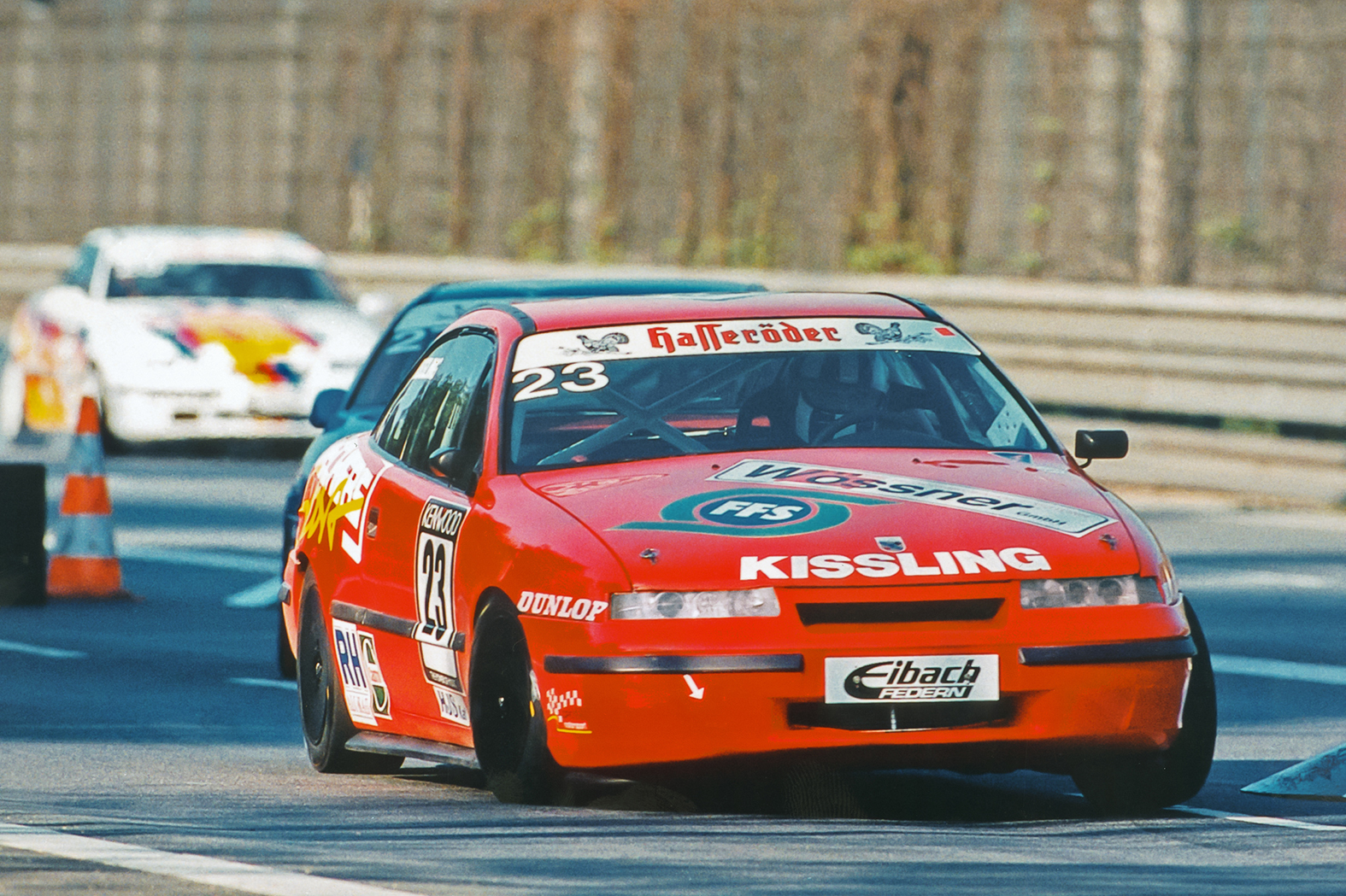
September 2021
